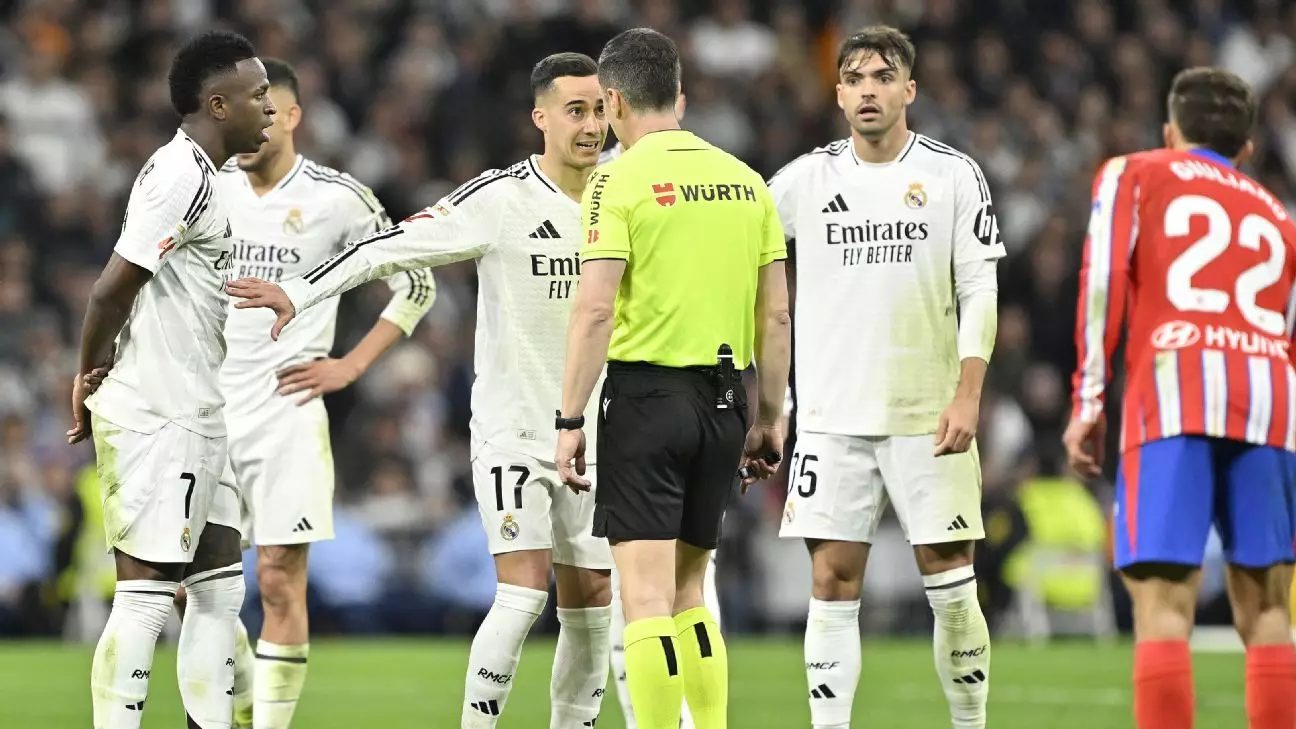The recent encounter between Real Madrid and Atlético Madrid has sparked heated debates surrounding the use of Video Assistant Referee (VAR) and officiating standards in LaLiga. This match, which ended in a 1-1 draw, was filled with intense moments and growing tensions, particularly stemming from a contentious penalty awarded to Atlético. As opinions clash, the implications of VAR in modern football come to the forefront.
In the 35th minute, a pivotal moment occurred when a penalty was awarded to Atlético Madrid after VAR reviewed a challenge by Real’s Aurélien Tchouaméni on Samuel Lino. Julián Álvarez calmly converted the spot-kick, putting Atlético ahead in a high-stakes derby. Following this decision, Real Madrid head coach Carlo Ancelotti expressed his frustration, suggesting that “football people don’t understand” the nature of such penalties. His comments reflect a broader concern among fans and players alike regarding perceived inconsistencies in officiating.
Despite Ancelotti’s initial reluctance to dissect the penalty decision, Madrid has been vocal about its grievances related to refereeing standards. The team had recently lodged a formal complaint following a controversial loss to Espanyol, which prompted Atlético to accuse their rivals of unfairly pressuring match officials. This backdrop reveals the growing scrutiny over the quality and reliability of refereeing in LaLiga.
Ancelotti conveyed mixed feelings about his team’s performance during the derby. He acknowledged that Real Madrid played exceptionally well in the second half, asserting their dominance and eventually leveling the score with a goal from superstar Kylian Mbappé. His statement, “I think we deserved more,” encapsulates Real’s overall view of the match where they controlled more of the play. However, he did note that the early penalty had a significant impact on the team’s morale, suggesting that VAR’s involvement, while intended to improve fairness, sometimes leads to unexpected psychological effects on players.
Conversely, Atlético’s coach, Diego Simeone, defended the officiating, praising the referee’s handling of the game while remarking on the divisive nature of certain decisions. For instance, the yellow card issued to Madrid’s Dani Ceballos for a tackle on Pablo Barrios was disputed, highlighting how perspectives on refereeing can vary wildly among stakeholders within football.
The spotlight on the match has reignited calls for structural reforms in the officiating system within LaLiga. Real Madrid’s open letter asserting that the current system is “completely discredited” raises valid concerns about the efficacy of VAR and the overall quality of officiating. Such calls for change may pose a challenge, given the deeply entrenched traditions and practices within Spanish football.
The dialogue surrounding this match serves as a crucial juncture for everyone involved in the sport. With fans, players, and coaches expressing frustration over official decisions, it becomes imperative for governing bodies to address these matters comprehensively. As the debate rages on, only time will reveal if meaningful reforms will take hold, ensuring that the integrity of the beautiful game is maintained.
The intersection of technology, officiating, and team psychology remains a vital discussion point in football, particularly as the stakes grow higher in competitions such as LaLiga.

